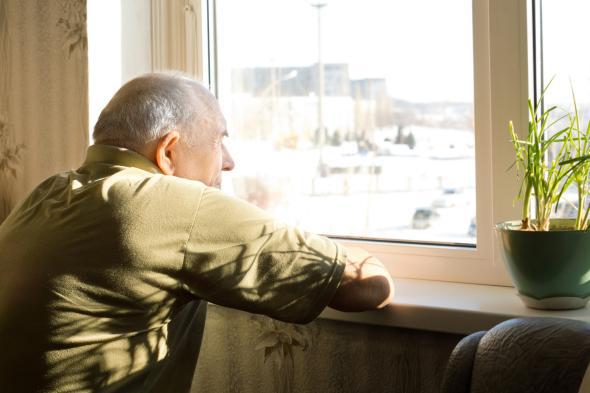It’s a commonplace to point out that, within the gay male community, youth—and the sexual attractiveness that supposedly comes with it—is a valuable currency. Obviously straight folks prize smooth skin and nubile bodies as well, but there’s a certain way in which the youth cult gets hyper-concentrated among gay guys. And as a new study shows, that concentration can have a disturbingly negative impact on us as we inevitably age.
The paper, out this week in the journal Social Science & Medicine, looked at a sample of 312 gay men with an average age of 61; a team of researchers led by Richard G. Wight asked the men the extent to which they agreed or disagreed with statements like “aging is especially hard for me because I am a gay man,” and “as I get older, I feel more invisible when I am with other gay men.” The researchers’ goal was to test their hypothesis that “the particular overlap between internalized ageism and internalized homophobia among midlife and older gay men generates ‘internalized gay ageism.” In other words, in gay men, the wider overvaluing of youth in our culture mixes with standard homophobia to create a brand-new internalized “sexual minority stress.”
The bad news? “Internalized gay ageism” is a real thing. The study, which created a scale for measuring IGA, found a “positive and statistically significant” relationship between IGA and “depressive symptoms.” Importantly, the sample group had been tracked since enrolling in an AIDS-related study in 1984 (61 percent of respondents were HIV-negative), the historical data from which enabled researchers to control for confounding factors like depressive symptom history. While the paper warns that these results, which focused on an urban cohort, should tested on a larger scale before being generalized to the elder gay male population at large, this paper (taken with plenty of anecdotal observation) is enough to suggest that IGA is a very real problem for our older generation.
Fortunately, the researchers identified one factor that shows promise in at least partially softening the “social stress” of IGA: mattering. “Mattering,” according to the paper, “refers to the degree to which people feel they are an important part of the world around them.” It goes on: “People with a high sense of mattering feel that others think about them, seek their advice, or care about what happens to them.” A sense of mattering could come from a variety of sources, but one that immediately comes to mind is for young gay men to make a point of spending time and developing friendships with older gay men. There’s something of a taboo on this within the community—partially due to the (sometimes true) idea that older gay men are only after sex and partially because younger gay men can be incurious, historically ignorant babies—but it’s one we have to overcome. I have long encouraged cross-generational conversation as a way of transmitting and preserving our history—but now we know it’s also essential to the health of the guys who made it possible for us to be out in the first place.
To their credit, the paper authors recognize the injustice inherent in having our heroes think they don’t matter because they are no longer idealized young studs: “These men have traversed unparalleled, personally relevant historical changes across their adult lives and have paved the way for younger generations of sexual minorities to live in a time of less institutionalized discrimination,” they write in the conclusion. “Still, they are subject to feeling socially invisible and depreciated in their later years, especially within the gay male community.” This is shameful—the very place they should feel at home and cared for should not be a source of stress. We can and must do better.
